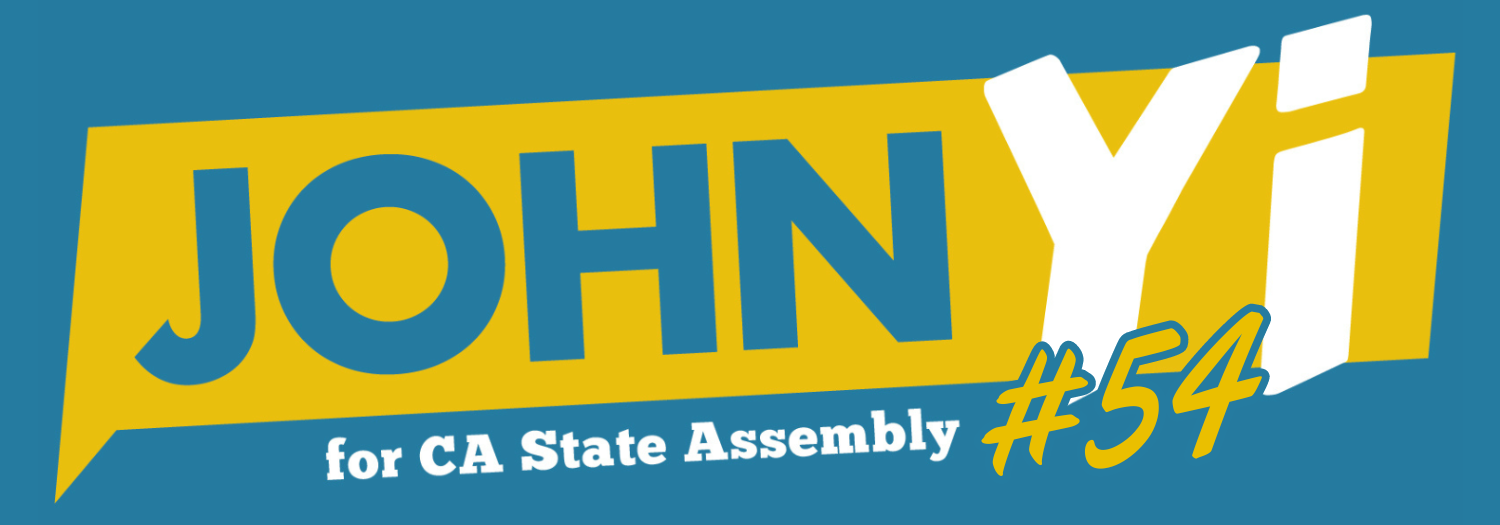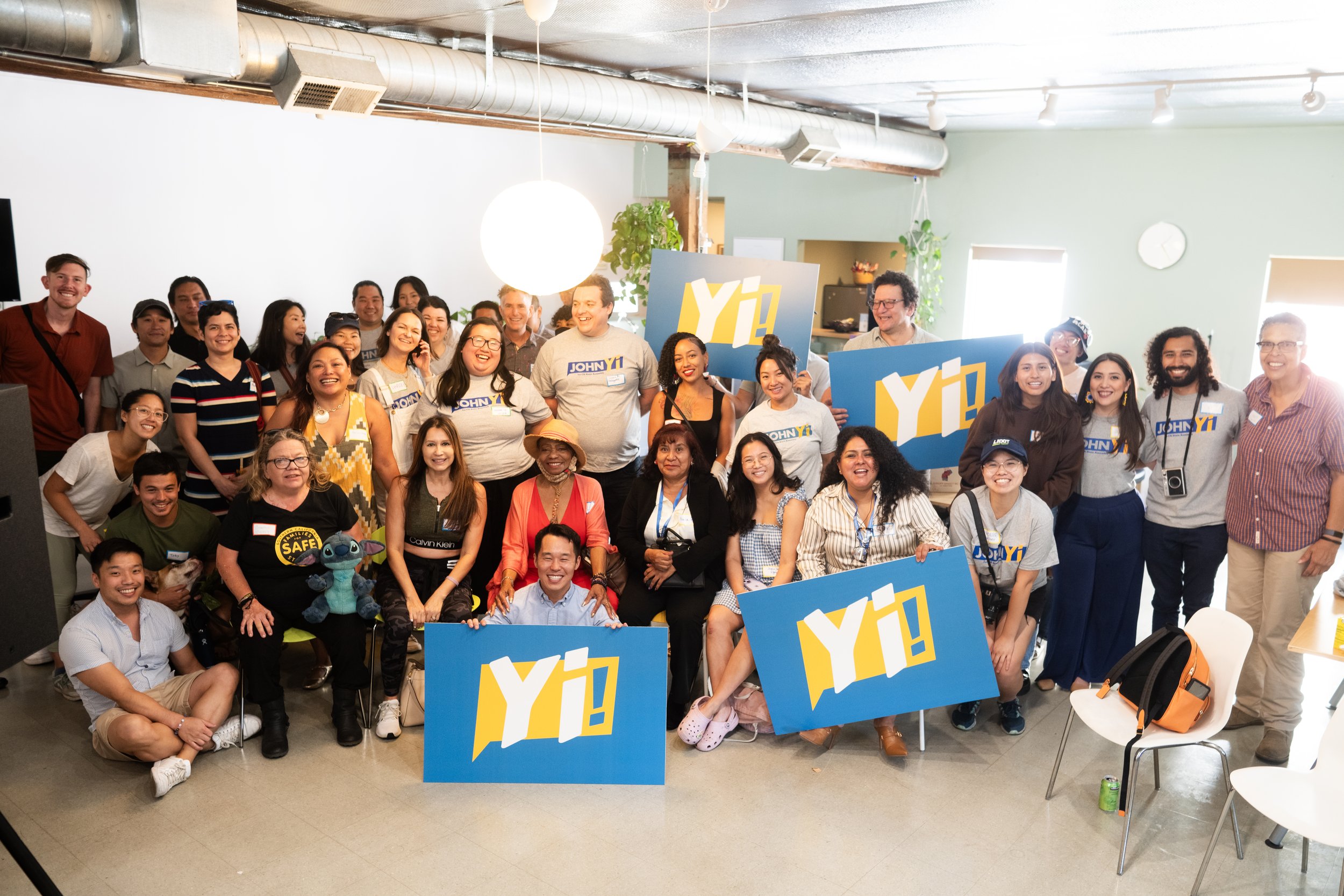About john
Born in LA’s Koreatown, where his parents first immigrated from South Korea in the 1970s, John has been a nonprofit advocate fighting for policies that impact our families, immigrants, public health, and the environment.
While working at the American Lung Association, John helped pass the tobacco tax (Prop 56), raising $1.4 billion to fight teen smoking & Big Tobacco. He also helped secure $1.75 million in annual CDC funding for children with disabilities.
Today, John is the Executive Director of Los Angeles Walks, LA’s leading pedestrian advocacy nonprofit, and a citywide leader on transportation. He works with our families, seniors, and students to create safer streets and improve mobility for pedestrians and transit riders. His projects include making Koreatown more walkable and LA’s Union Station more pedestrian friendly.
John also worked for the U.S. Helsinki Commission, where he met with Putin-opposition leader Alexander Navalny and supported the passage of the Magnitsky Act.
He received his BA from the University of Michigan (Go Blue!) and his MA from Georgetown University. John lives with his fiancé, David, and doggy, Wilshire.
our priorities
housing and homelessness
There’s a paradox when elected officials talk about the housing crisis. On one hand, they’ll say housing is a right, or a need entitled to everyone. But on the other hand, they’ll look to the housing market to fix this problem. Yet like most markets, profits are the driving force. An inalienable right to housing? That’s not even on the radar.
We’re essentially trying to coax a system that has no interest in being coaxed. The status quo politics that has been perpetuating this system over these past decades has not delivered for our district and for much of LA.
GIVE LAND BACK TO THE COMMUNITY
The more the community owns the land, the more control they have of its future.
We need to invest in programs like community land trusts and nonprofit community development organizations to build affordable housing. That way housing decisions are rooted in community values, not a sole profit motive.
We need to seriously fix and invest in the first time home buyers program to the scale of the GI bill. Home-ownership is key to building generational wealth for working class families, and leads to the expansion of education and job opportunities.
GROWING OUR NEIGHBORHOODS, TOGETHER
Those experiencing homelessness are our neighbors and our families. We need state leadership that’ll bring resources for mental health and housing support, and lead in coordinating the often disjointed efforts and agencies tackling this issue.
We need community housing that serves all kinds of people. Good housing is diverse housing, people of all incomes, generations, cultures, family sizes (dog included). That means focusing on policies that incentive housing for people like our seniors, students, and homeless.
There’s a lot of people in our district and as such we need density development that actually makes sense for our communities. That means reliable public transit, well invested public parks and libraries, and safe walkable streets.
WE NEED TO INCREASE RENTER POWER
Today’s housing crisis isn’t just about the lack of housing but the lack of power.
We needed better rent control yesterday. By repealing Costa Hawkins and the Ellis Act, we can give local cities the power to expand rent control and increase the supply of affordable housing.
We need to increase renter protections to stop tenant harassment, assure clean and dignified housing, and prevent intentional efforts to drive out residents. We do not accept donations from real estate and/or corporate developers.
GROWING GAP BETWEEN RICH & POOR
If there is any place in our region where we are seeing the growing gap between the rich and poor, come visit our district. There is immense wealth being made by few while many of us are being left out. The key to a healthy multiracial democracy is one where people of all backgrounds and income are living and mixing together.
However, current policies are transforming our region as historic immigrant and low-income neighborhoods become “low-hanging” fruit for corporate and private development.
LOWER THE COST OF LIVING
Rent eats first. For our neighbors, unpredictable rent hikes can upend lives overnight. We need more transparency on property sales and accountability against bad actor landlords who intentionally drive out our low-income residents.
We need to reduce the cost of living for those at most risk of falling into homelessness, especially our seniors and youth. Through utility, rent, food, and transportation assistance we can make sure our most vulnerable stay housed.
BUILD WORKING CLASS POWER
It’s time we support unionization of the working class in the tech industry. They are our warehouse workers, delivery drivers, and everyone in between. We can make sure that all those who help generate billions of dollars share in the wealth.
We need policies that seek to institutionalize working class power, like mandating worker seats on corporate boards, campaign finance for working class candidates for office, and support for tenants associations.
STRENGTHENING COMMUNITY HEALTH
Through a single-payer statewide healthcare system we can finally leverage the full weight of California’s purchasing power to get the best and cheapest price from drug companies and expand coverage to millions of Californians.
Health is wealth, especially for communities. We need to invest in community-rooted solutions (ie: community health clinics, local nonprofits and community health care workers/promotoras) to improve community access to health care services.
Public education is also a key part of community health and a an important public commitment. If we have strong public schools - quality education provided to everyone - we have a more resilient democracy.
urban climate change
Across the board, children who grow up in our district suffer from poorer health outcomes. Asthma, chronic obstructive pulmonary disease, obesity, take your pick. As urban climate change raises temperatures and adds costs to utility bills, our district deserves speedy action on the environment. Given how transportation represents nearly half of our greenhouse gasses, we need strong state leadership on improving congestion, traffic, and improving public transit.
However, we’ve been lacking in leadership when it comes to our region’s transportation network (our sidewalks to our buses and trains) and holding corporations accountable for their role in this existential crisis.
IMPROVE THE PEOPLE’S TRANSIT
If we truly want less traffic, LA must have a better and reliable option outside of their car. That’s why public transit is so important. However, the LA Metro Board is made up of appointed officials. It’s time we elect our own LA Metro Board so that decisions are made by users of our buses and trains who have actual lived experience.
The only way to move people out of their cars is to provide them with reliable, dignified, and easier options. If we want a transportation system that makes sense, we need to invest far more in walking, biking and public transit options.
HOLDING CORPORATIONS ACCOUNTABLE
Too often corporations forfeit responsibility for the damages of their products by blaming the consumers. If we’re to truly reverse our path to climate disaster we need policies that hold corporations responsible for the life cycle of their products, from production to products like plastics, oil & gas, and forever chemicals.
PUBLIC SPACE, NOT CORPORATE MALLS
With more and more extreme heat days every year, we need state policies focused on cooling our communities. It’s time we invest more in our public parks, our public libraries, our public sidewalk trees and shade. We need to move away from having our corporate malls and expensive condo amenities from being our de facto public spaces.
Our region’s car culture comes with a price. In addition to costing you gas and insurance, our reliance on cars also impacts how we design our communities (blocks of parking lots, lack of storefronts, drive-through > walking). Through state leadership, we can make land use focus on developing affordable housing, green spaces, and climate change resistant infrastructure.


